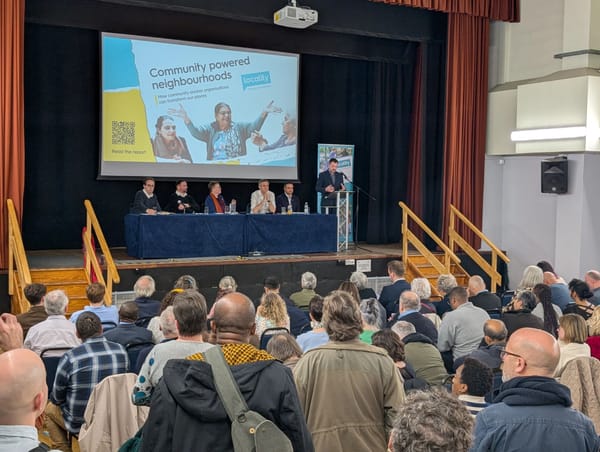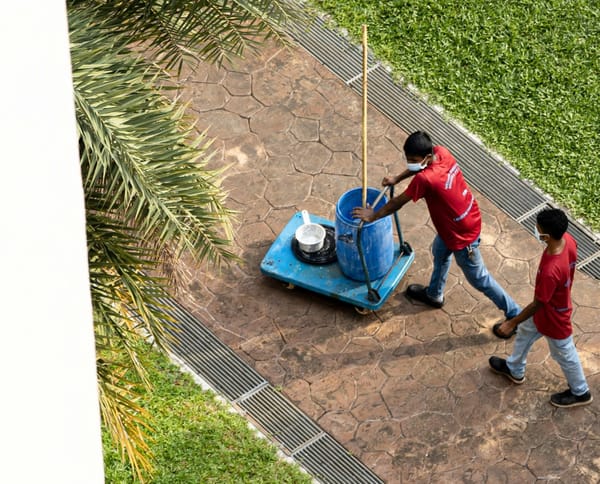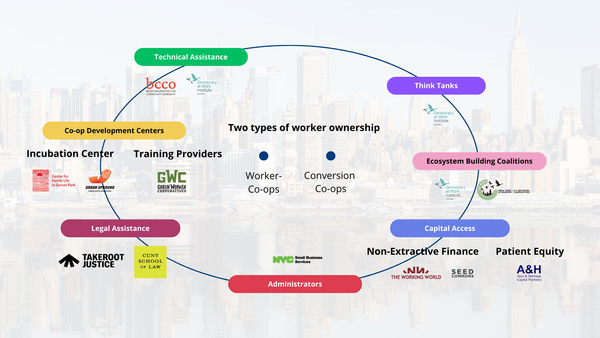Empowering tomorrow's environmental leaders: The 12-week environmental club for children in Librazhd
To reduce littering and improper waste disposal in his town, Arlis started an environmental club, with weekly interactive activities to cultivate a love and appreciation for the environment in children. Read on to learn about what worked!
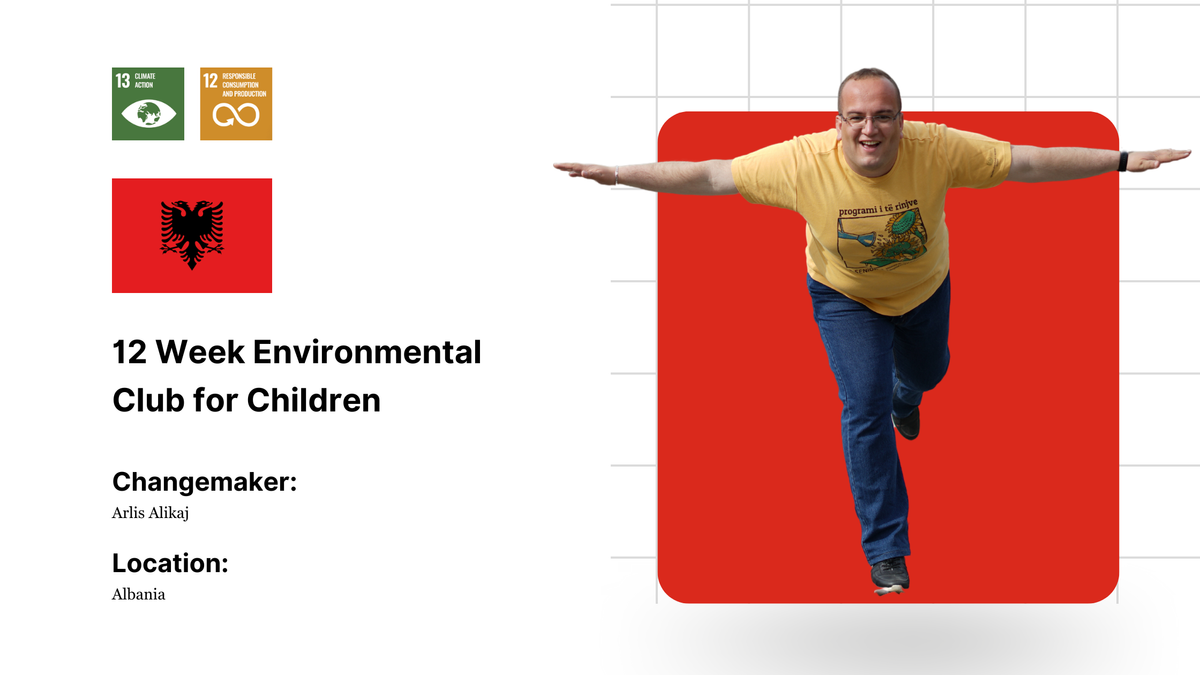
The town of Librazhd in Albania possesses an abundance of natural beauty. Majestic mountains surround it from all sides, while the historic River Shkumbin, which has supported human civilization and cultures for centuries, flows through the town.
Cast your eye towards the East and you’ll find the Shebenik-Jabllanicë, Albania’s largest national park. Bordering North Macedonia, it is home to critically endangered species like the Golden Eagle and the Rrajca beech forests, designated as a UNESCO World Heritage Site.
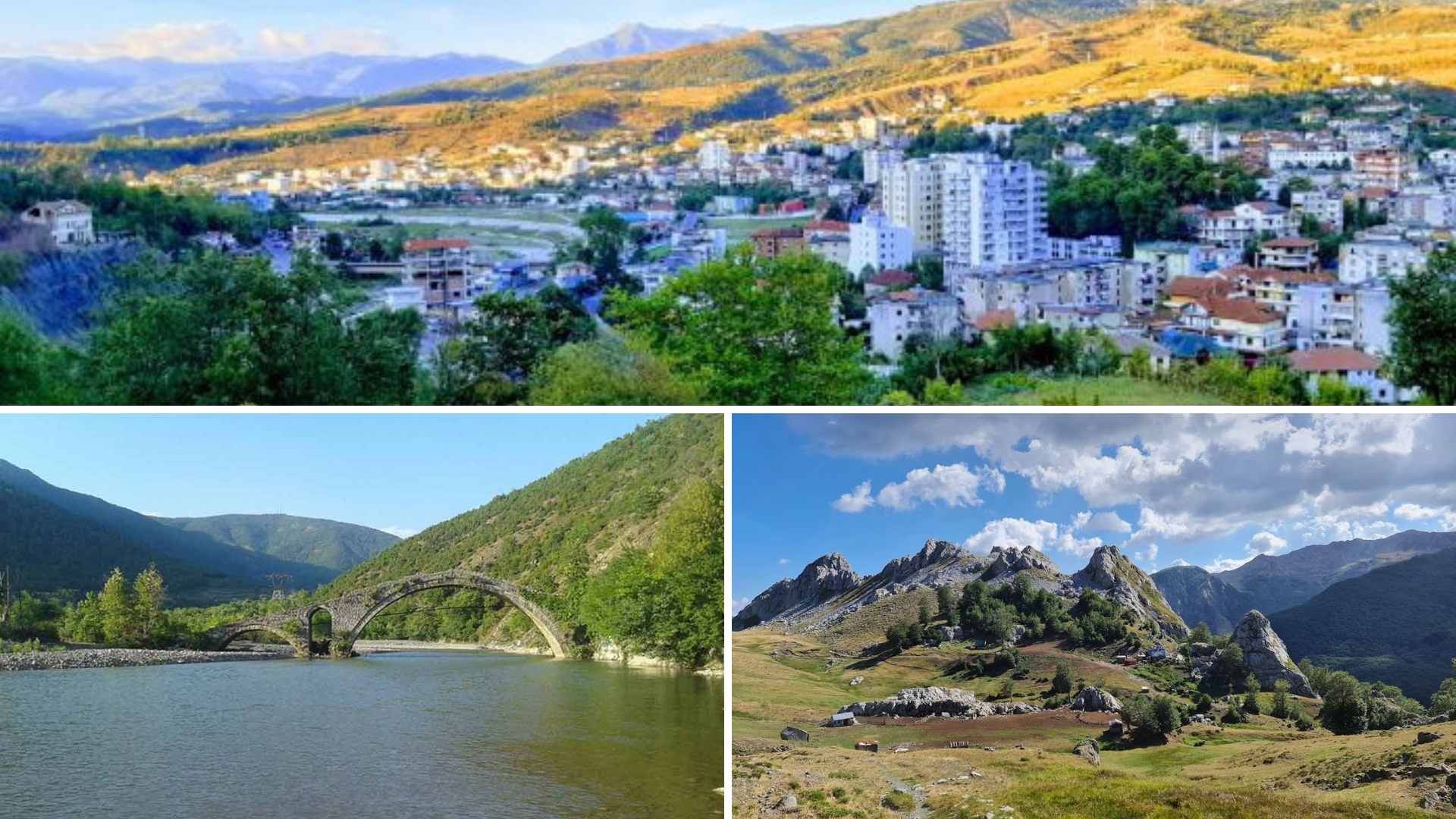
Littering, improper trash disposal and pollution makes it difficult for Librazhd to attract tourists despite its natural beauty
Despite this natural beauty, Librazhd struggles to attract tourists because of rampant littering and improper trash disposal by residents and organizations in the town. Young people are often the worst offenders of littering, casting their candy wrappers by the roadside after consuming them.
Although it is illegal, hospitals sometimes dump bio waste into the river, causing water pollution. It is common to see other waste such as electronic, plastic and metallic waste being improperly dumped by individuals and companies by the roadside or into the river.
Tourists who witness littering, pollution and poor waste management infrastructure in Librazhd write online reviews and blog articles, which makes other tourists worry about sanitation and food poisoning and think twice about coming. This leads to the town and its residents losing out on a very valuable income source from tourism.

“Even though Albania is currently a candidate to join the European Union and therefore, subject to certain environmental and waste disposal standards, there is little enforcement because there are bigger issues like governmental corruption,” said Arlis, citing the case where several government officials, including Albanian Environment Minister Lefter Koka, allegedly received bribes to award contracts to an inexperienced private company to construct and operate waste incinerators in Fieri, Elbasani and Tirana. Costing Albanian taxpayers at least 150 million Euros, the plants were either never completed or fully in operation.
One reason for this is because environmental education is low
Arlis believes one reason that causes littering and poor waste management is that environmental education is lacking, especially in schools for younger children. There isn’t much emphasis on environmental topics in school or town-wide awareness campaigns on the importance of keeping our environment clean and beautiful. Teachers are generally not trained in teaching climate education nor do they have access to any teaching materials.
This leads to a situation where Librazhd’s residents may appreciate the area’s natural beauty, but not respect the environment. In the latest Programme for International Student Assessment (PISA) test taken in 2022, Albania was ranked 62 amongst the 80 countries that participated, with 15-year old students showing a deterioration in abilities for subjects like mathematics, reading and science as compared to previous years.
“When we are already falling behind in core subjects like mathematics, climate education like recycling, tree planting or waste disposal are deprioritized,” said Arlis.
Citizens holding the government accountable can lead to change
Since he was young, Arlis Alikaj has been passionate about climate advocacy and social justice. He studied environmental engineering in college and channeled his training into investigative journalism, writing several critically acclaimed pieces, such as one that highlighted vanishing rivers and challenges with hydroelectric plants in Albania.
In 2014, he organized local youths to clean up the heavily polluted River Shkumbin, even publishing a video that showed the local hospital illegally dumping waste into the river. This led to a meeting with the mayor of Librazhd, who got the hospital to adopt proper waste disposal processes.

In 2018, he wrote an award-winning article about how chainsaw gangs were conducting illegal logging operations and making millions of dollars in the Rrajca beech forests, a UNESCO World Heritage Site in the Shebenik-Jabllanicë national park. While the Deputy Mayor of Librazhd had denied that illegal logging was happening, Arlis’ investigations revealed otherwise.
This article led to UNESCO sending the Albanian government a note of protest and the creation of several environmental forums where he got to dialogue with government officials. Eventually, a local management plan was created for the area and many Librazhd residents were thankful that the forest was preserved.
The success of both these projects showed him how citizens holding the government accountable can lead to positive change.
Later in 2018, he registered the Qendra Mjedisore Për Studime dhe Zbatime (QMSZ) or The Environmental Centre for Studies and Implementation, to engage in other grassroots projects related to the environment and youth empowerment.
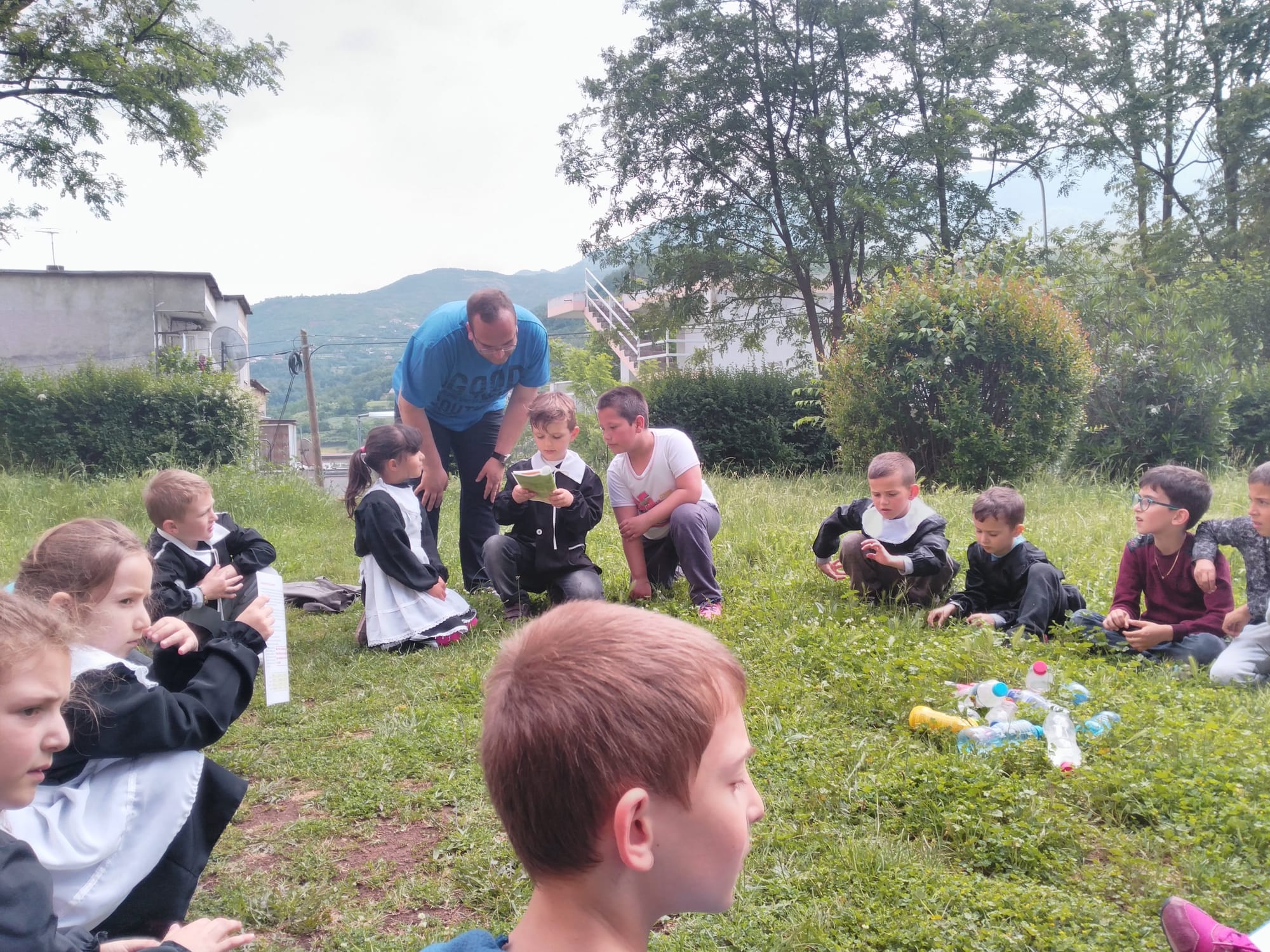
In doing so, he realized that environmental awareness was very low amongst the local population and there weren’t many initiatives for the environment. Because there aren’t many jobs and economic opportunities in Albania, many youths had a lot of time on their hands.
“It was quite depressing, both for the youths and for the environment. I wondered: what can we do to help youths use their time meaningfully and help drive positive change for the environment?” he said. Considering his limited resources, he decided to invest in environmental education for children.
“It is much easier to cultivate a mindset to care for the environment when they are still young and impressionable. They will remember what they learnt for the rest of their lives and it will shape their future actions when they become adults, all at a very low cost,” he said.
Solution: 12-week environmental club
So Arlis started a 12-week environmental club to bring elementary school youth on weekly excursions into nature to learn about the local environment through hands-on activities, adapted from the Youth and Environment Europe’s Discover Nature booklet.
By taking young people into nature, Arlis hopes they will grow a deeper sense of appreciation for the natural beauty of their home. With the knowledge gained from the weekly excursions, he hopes they develop a lifelong love for nature and grow up to become advocates and leaders among their peers on environmental issues.
Working with a teacher in an elementary school in Librazhd, they selected 20 students aged between 8 to 12 years old who attended 12 weekly sessions, culminating in a learning trip to the Shebenik-Jabllanicë national park, with 3 parents and the teacher serving as chaperones on the trip. Arlis also had 3 volunteers from QMSZ and a volunteer from the United States Peace Corps who helped with different parts of the weekly sessions.
Impact Measurement
Beyond the number of children impacted and sessions organized, Arlis also measures the number of indirect beneficiaries that the environmental club reaches through social media. He estimates that social media posts and local media coverage of the children’s activities have reached almost 2,000 people in Librazhd and over 10,000 people in Albania and abroad, encouraging more Albanians to care for their environment.
In addition, two memorable stories have helped Arlis to know that the environmental club was successful in educating the children on the importance of environmental issues and cultivating positive environmental habits.
The first happened during Week 3 of the program, as students were walking back to school from an outdoor activity. One student suddenly stopped to pick up the wrapper for a bag of potato chips that was lying on the ground and dropped it off at the next trash can she saw.
“Even though it was a small gesture, we knew the program was starting to cultivate positive habits. Today they could be disposing of litter properly. A few years later, they could be engaging their families in conversations about environmental topics, improving Librazhd in the future,” said Arlis, beaming with pride.
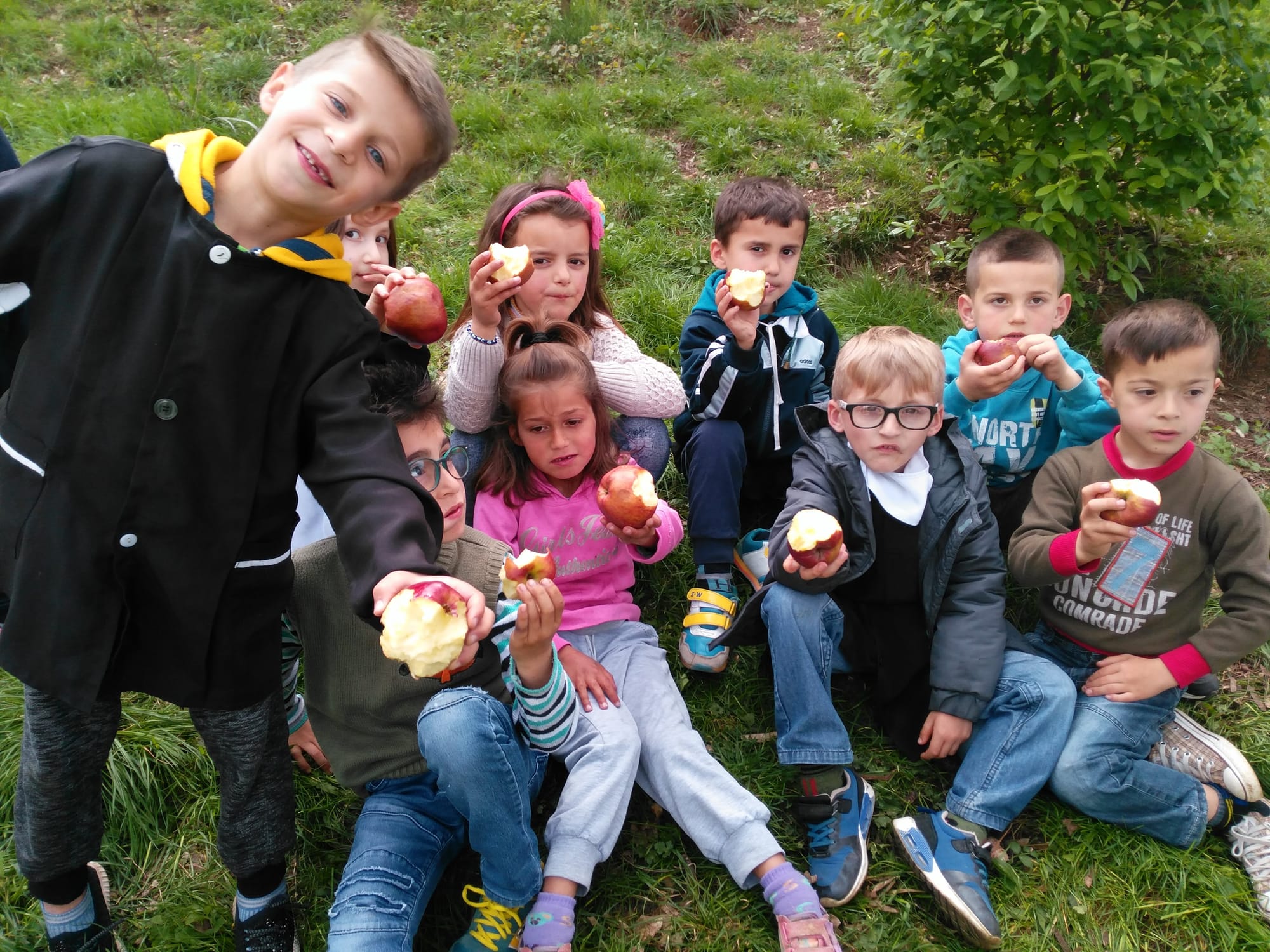
Beyond attitudes towards the environment, the program also had an impact on the children’s eating habits. One boy who loved sugary snacks and ate it everyday started eating healthy fruits like green apples, bananas and carrots after learning about them during the environmental club sessions.
“He stopped pestering his mother for sugary snacks and instead, asked her to prepare fruits he could eat during break times at school!” Arlis recounted.
Best Practices
What makes the environmental club sessions so effective? Arlis attributes it to a few factors:
Use different interactive outdoor activities that engage their senses
When engaging young children, steer away from lectures or one-sided talks. Instead, give them a variety of hands-on projects that bring them outdoors and engage their senses (sight, taste, hearing, smell and touch) to create a connection between them and the environment.
Some examples of the activities Arlis has used in the environmental club include the following, many which were adapted from the Youth and Environment Europe’s Discover Nature booklet:

- Going on a cleaning quest to pick up safe garbage from their surroundings and help students learn about the waste situation in Librazhd
- Making a puppet by recycling materials that have been thrown away (e.g. paper, plastic bottles and boxes)
- Visit the local pond to observe frogs and tadpoles to learn about the role they play in the ecosystem
- Planting a tree to learn about the vital roles that trees play in supporting biodiversity and life on Earth
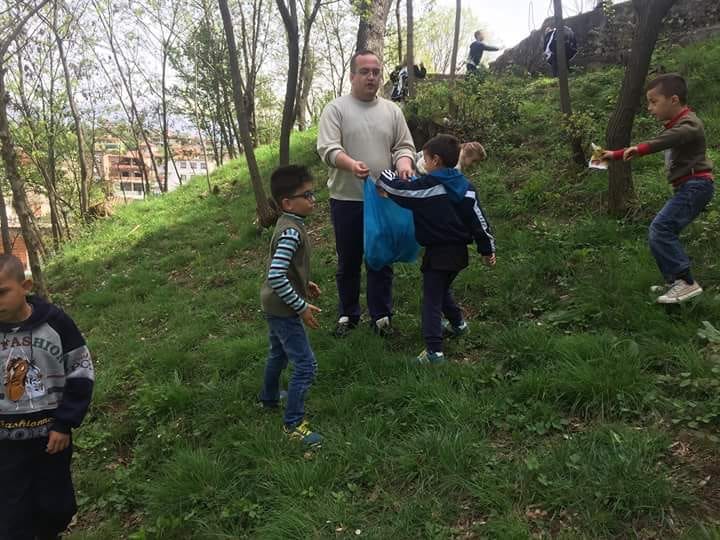
Students spend most of their school day staying indoors in a classroom and they come alive during these interactive sessions that are held outdoors. “You cannot appreciate nature without being in it,” said Arlis.
In the last session, students go on a trip to the Shebenik-Jabllanicë national park, where they hike to the highest point, a height of about 2,253 meters above sea level.
“The children hear the sounds of birds, wood mice, otters and lynxes as they walk on rocks and grass along the way. It opens their eyes to the beauty of nature and what they have to preserve,” he added.
By doing something different each week, Arlis and his team give the children something to look forward to and be excited about. “They are always curious about where we are going next week. Is it a pond, a hill or somewhere else? This keeps the attendance high across the 12 weekly sessions,” he said.
Explain difficult environmental concepts by making them relatable
When explaining complex environmental concepts like decarbonization to children, Arlis has found that breaking down the concepts into smaller pieces and using experiential activities for each concept is very effective in helping children to understand. For example, before children can understand decarbonization, they must understand concepts such as fossil fuels, renewable energy and the greenhouse effect.
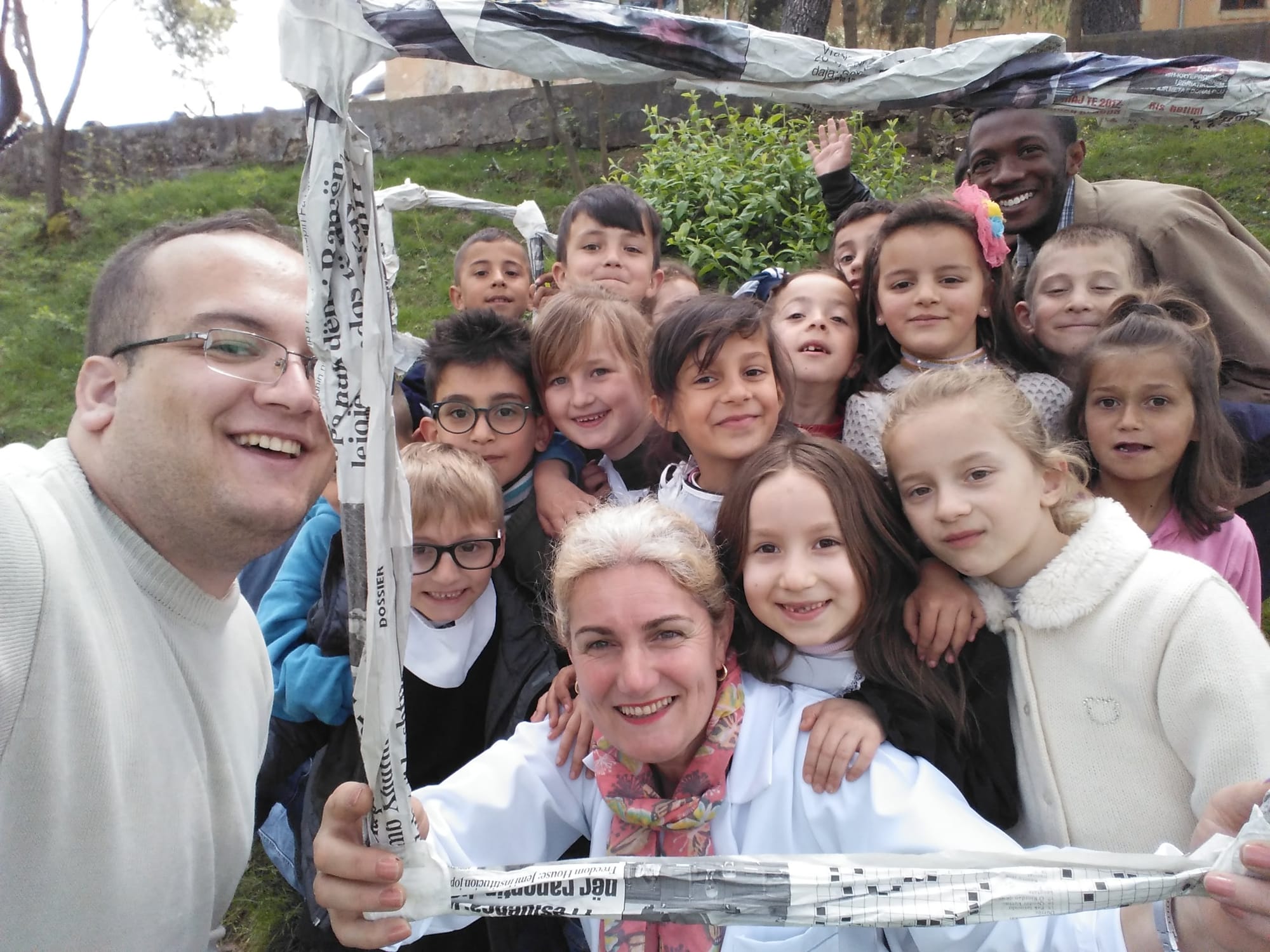
To help them understand the concept of renewable energies, a facilitator could invite children to build a solar oven, a device that uses sunlight as its energy source for outdoor cooking. Building the oven helps the children to better appreciate why renewable energy sources are needed.
Other activities include using art supplies to ask children to draw different processes in the carbon cycle, such as photosynthesis, respiration, fossil fuel combustion and carbon sequestration to reinforce their understanding of how carbon moves through the environment.
Or asking children to take on a mini-experiment in decarbonization by challenging them to make their classroom carbon neutral for a week by doing actions such as turning off lights when not in use, using natural light instead of electric lights and unplugging unused electronics.
Accommodate for diverse learning needs of students
When designing activities, another best practice that Arlis recommends is to cater for students with learning needs. For example, a boy on the autism spectrum was paired with a volunteer who would be extra patient and loving when explaining the activities, which made him feel safe.
“The boy grew to become very outgoing and cheerful in nature. We even had to watch out for his safety during the capstone trip to the national park because he was so excited!” Arlis recounted.
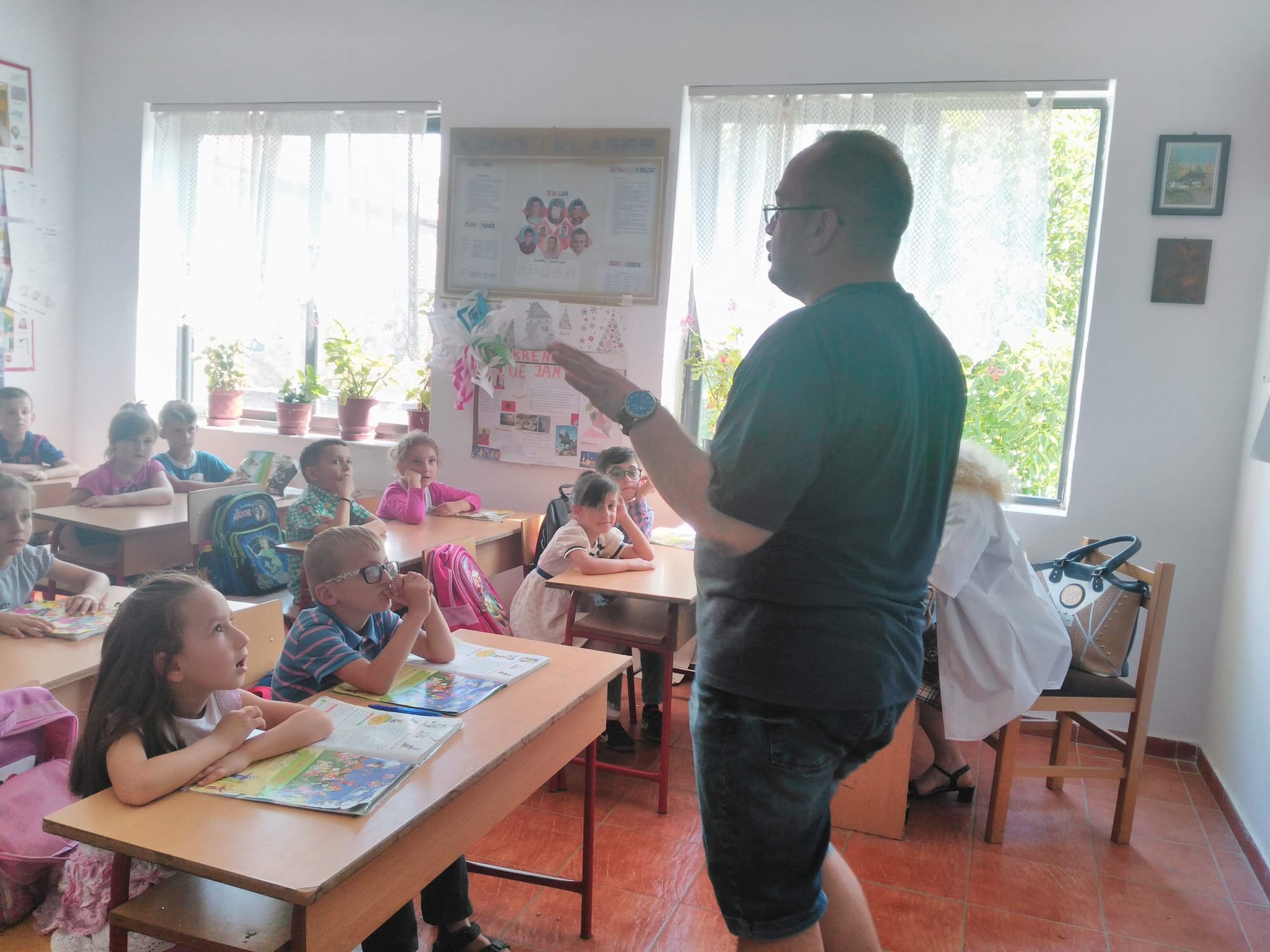
Incorporate flexibility in your sessions
On some occasions, something urgent would come up which required the school that Arlis partnered with to make last-minute adjustments to the durations of the environmental club sessions, reducing them by 30 minutes and sometimes even up to an hour from the original two hours that were planned.
On other occasions, it meant changing venues for the session to be held indoors on an extremely hot or rainy day or changing activities because the children were not interested in tree planting and wanted to make puppets instead.
In a time where technology and social media has contributed to children having shorter attention spans, Arlis believes that adaptability is a key skill for facilitators to keep young children engaged. If they are looking at their phones instead of paying attention to the activities, he quickly switches to back-up activities to recapture their attention.
“Don’t get angry or feel like you have to stick to a rigid plan. Be light, playful and experiment with different ways of engagement,” he advised.
Challenges
Securing funding to replicate the program across Albania
Despite the teacher’s desire to repeat the environmental club for more students and interest from other schools, especially during the summertime, the lack of funding and diversity of donors proved to be the main obstacle in scaling the success of the program across Albania.
Arlis had funded the first run of the program out of his own pocket and the expenses for materials and field trips, while small on their own, could add up to a significant sum, requiring almost $780 USD to run. It was just not sustainable for him to do it for multiple schools, as much as he wanted to.
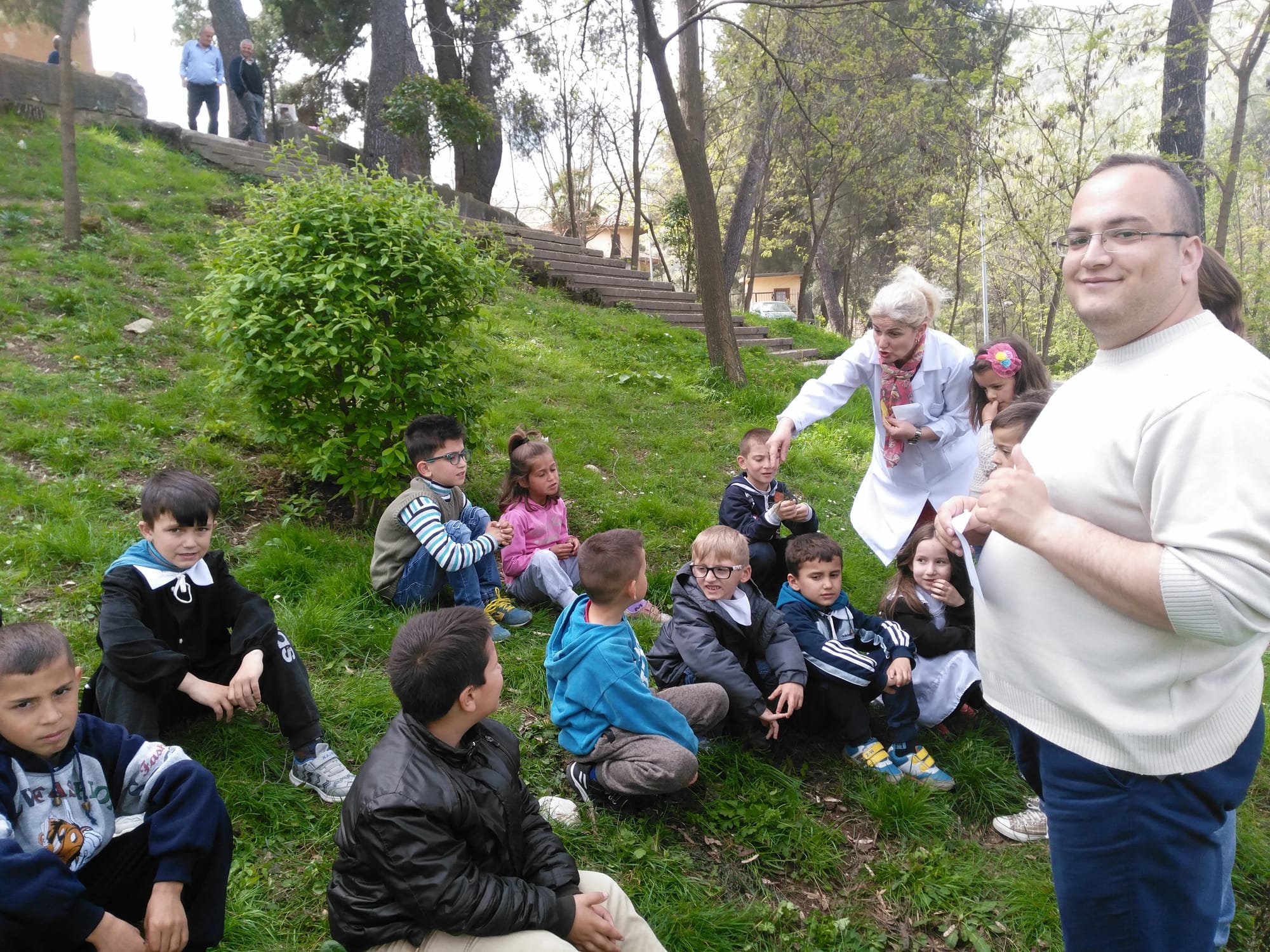
In a country where the average salary is around $400 Euros ($579 USD) a month, he reckons the government and funders have more pressing priorities such as economic development instead of environmental education.
“But the good thing is we have an established and proven set of activities that can be run on a small budget for significant positive impact,” said Arlis, who hopes for the chance to run the program again in the near future.
Staying strong amidst pressure from powerful people and organizations
Over the years, Arlis has faced backlash and pressure from powerful people and organizations to stop his advocacy work. His 2014 video exposing the local hospital’s unlawful disposal of waste into the River Shkumbin garnered widespread attention and he was harassed by businesses and government officials in Librazhd.
They accused him of damaging the reputation of the town, even when his intention was just to bring awareness to the issue that despite having a sufficient budget, the waste was not transported to the incinerator in Elbasan as planned, but instead handled incorrectly.
“I had wanted to ensure accountability and encourage proper waste management practices. They saw me as a troublemaker when I was just trying to do things the right way,” he said.
Thankfully, an international NGO in Tirana, Albania’s capital, supported him to organize a meeting with the mayor, where Arlis explained his goals in wanting to improve the town and not to shame anyone. With the mayor’s help, the hospital began to adopt proper waste disposal practices.
It was later reported that the mayor was involved in corruption, specifically profiting from bribes given to him by companies that were supposed to ensure proper waste transportation to the Elbasan incinerator but who never did.
A similar incident happened again in 2018 with his article about chainsaw gangs conducting illegal logging operations in the protected beech forests of the Shebenik-Jabllanicë national park.
Gangsters from the illegal logging company stalked him and threatened to sue. Government officials even sent complaint letters to his Editor, demanding for Arlis to reveal his sources and have his employment terminated.
Although he was scared, what kept him going was knowing that he was just serving the community by reporting the truth. “I had a friend whose mom had passed away and he told me how they used to have picnics by the river. When the river is polluted, these memories are also polluted and I think these beautiful memories are worth preserving,” he said.
His favourite quote is from Mother Teresa, who is of Albanian descent: “We can only do small things with great love.” This statement inspires Arlis and is what he hopes his environmental initiatives can be, small projects implemented with great love.
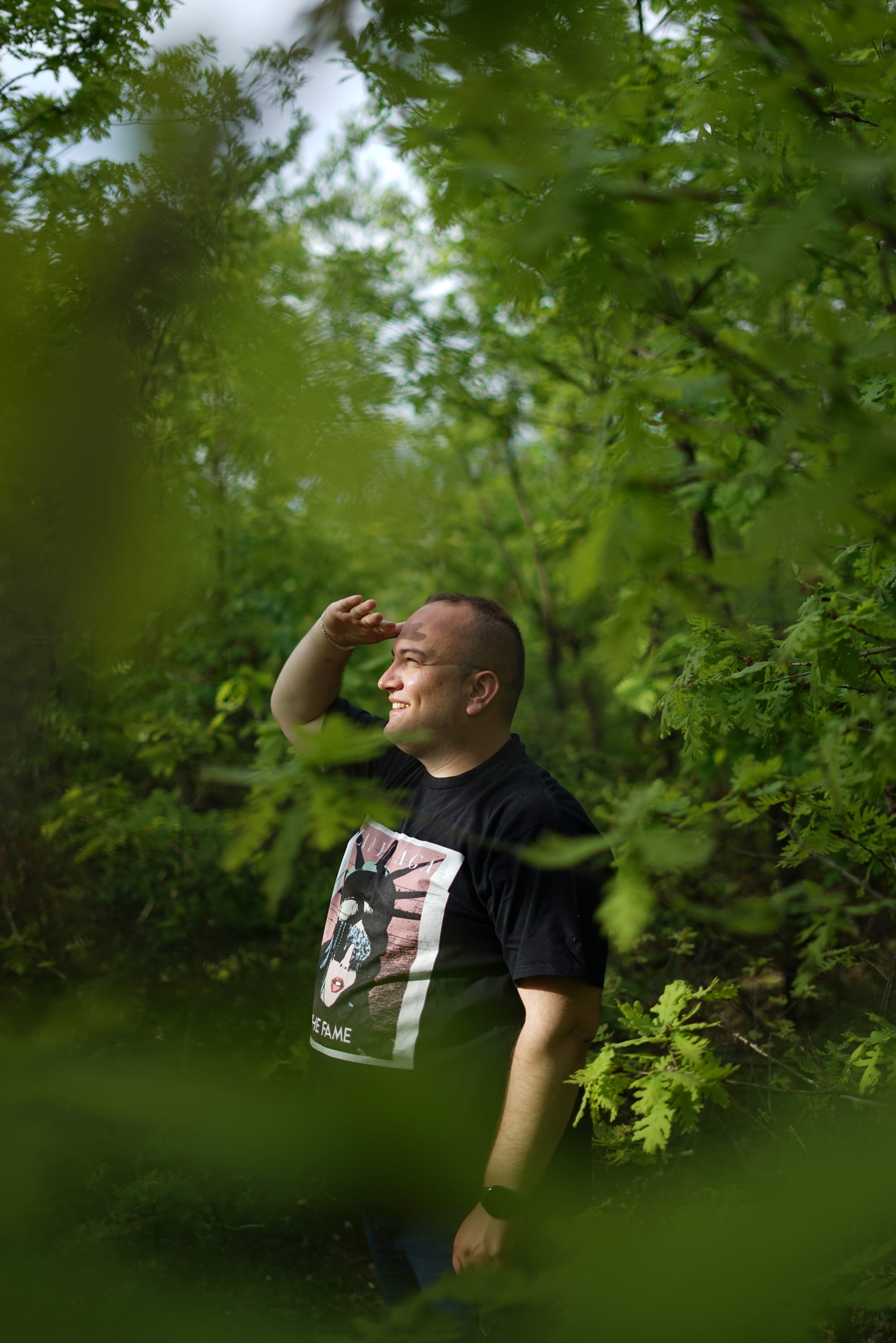
Featured Changemaker
Arlis Alikaj is a passionate community activist, award-winning investigative journalist and Executive Director for the Environmental Center for Studies and Implementation, with experience organizing projects on environmental, youth, and gender issues.His passion to make positive change drives him in all areas of his work, and inspires him to write on the most pressing and under-reported issues in Albanian society. Where Arlis sees wrong or inequality or injustice, he always speaks out, because he cares about the future of his country.
